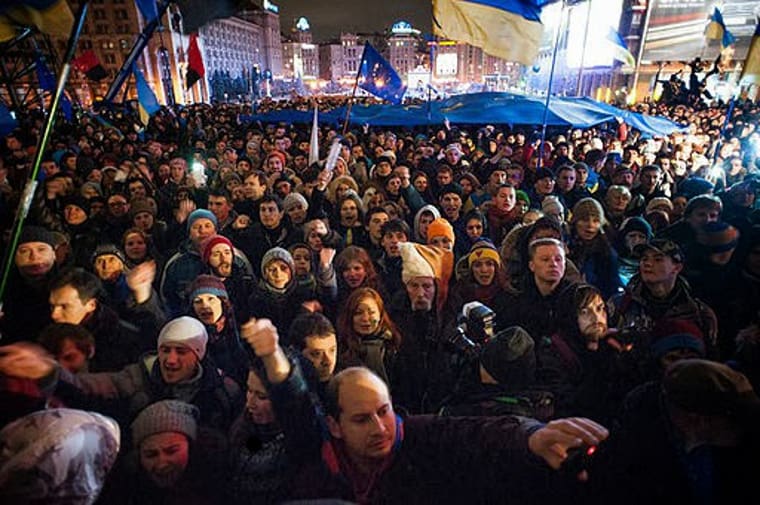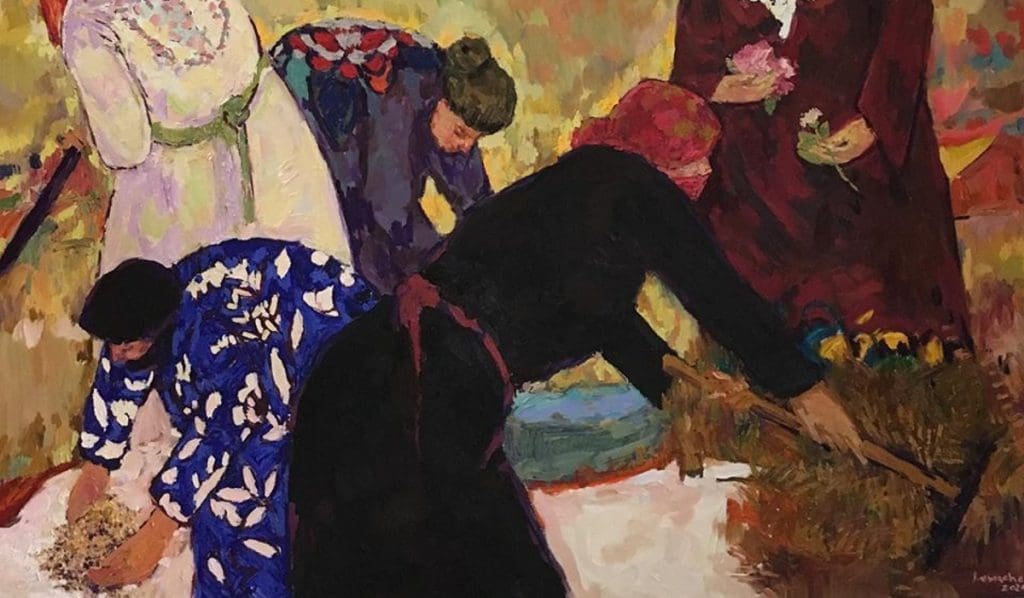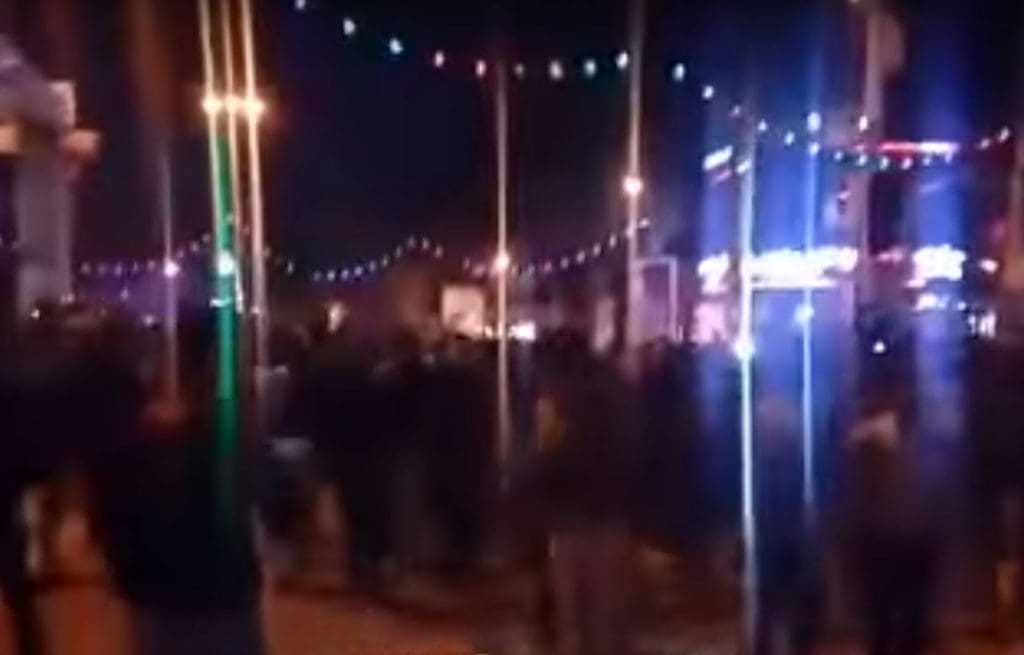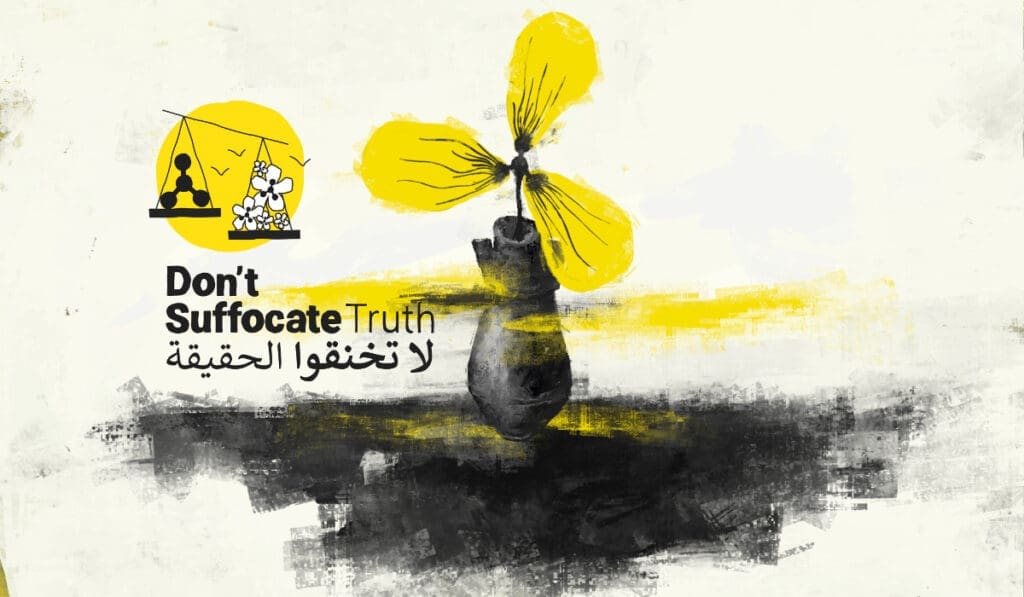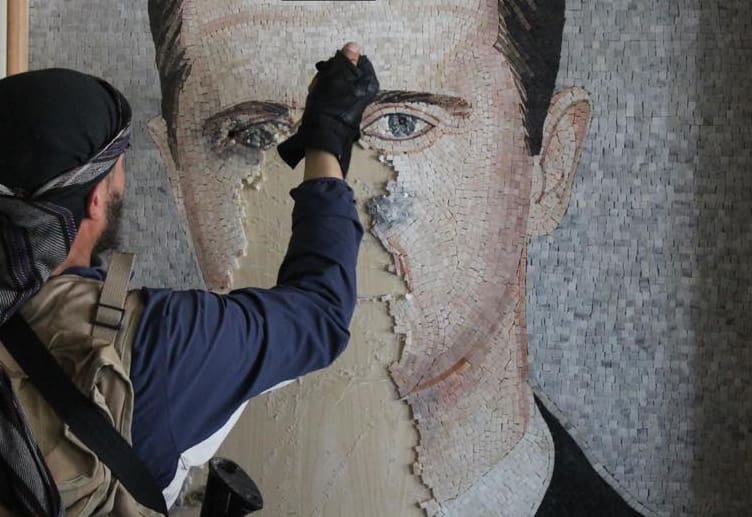Transcribed from This is Hell! Radio’s 27 September 2014 episode and printed with permission. Edited for space and readability. Listen to the full interview here:
“There’s a lot of real old-fashioned class antagonism at the heart of this. When, on top of that class antagonism, you add an actual war with shooting, it becomes really ugly.”
Chuck Mertz: Our guest, live from New York City, is Keith Gessen, founding editor of n+1 magazine. Keith is co-editor of the new collection celebrating ten years of the cultural literary magazine n+1, Happiness: Ten Years of n+1. Keith also wrote the piece “Why Not Kill Them All?” on Ukraine for the London Review of Books. Good morning, Keith.
KG: Good morning.
CM: You start your story about a Mikhail Mishin, who grew up in a large town next to Donetsk in eastern Ukraine, for several years playing football, rising to the Ukrainian second league. Eventually, as you write, “his father helped him find work in the sports section of city government, where he lobbied for money for sports facilities and attended their opening ceremonies, where he always gave a short speech about the moral and physical benefits of sport. No scholar of languages, he was never able to master Ukrainian fully, which perhaps would have kept him from climbing higher in politics if things hadn’t taken a strange turn for him in the Donbas region earlier this year.”
I think this is a good place to start, because we hear so much about a Russian-Ukrainian divide in Ukraine. How would you describe that divide?
KG: That’s an interesting and difficult question. Just to go back a little bit—you know, a few hundred years: Ukraine used to be in the southwest corner of the Russian Empire. But part of it was always either in Poland or, when Poland got chopped up by the Great Powers, it was in the Austro-Hungarian Empire. So western Ukraine has always been sort of part of Europe, and eastern Ukraine has, since the 17th century, been part of Russia.
In the 19th century, some scholars and writers and historians in Ukraine started thinking, “we are not Russian, and we’re not Polish. We are a separate people; we are Ukrainians, and our capital is in Kiev.” And this became an aspiration for Ukrainian nationalists.
There was a brief period of Ukrainian independence after the Russian Revolution in 1917, and then of course it became part of the Soviet Union. Then, in 1991, Ukraine became independent.
In 1991, the question that a lot of people had was, is this place with these different kinds of people—and a place that’s getting pulled in two different directions—is this country going to be able to stay together?
As time passed and the country did not fall apart, it seemed like it would. But after the revolution earlier this year, it has started to come apart.
CM: One of the things we always hear when it comes to Iraq, when it comes to the Middle East, is that these borders were created in boardrooms in London; they are false borders. They exacerbate the problems between the different groups that live in the region. Can we make that same argument about Ukraine? That it is an artificial place created by imperial powers outside of Ukraine?
KG: The current borders of Ukraine were made in the 1920s by the Soviets. And the way they drew them, more or less, was through a census. They asked which population was predominant in what part of the country. At the time, there were a few more Ukrainian speakers than Russian speakers in these areas.
The borders in question now are the ones in the east, because there are a lot of Russian speakers there. But in the ‘20s, at least according to the Soviets back then, there were a few more Ukrainian speakers. So a lot of people complain about those borders, but I think they were done as fairly as they could have been. And, you know, all borders are artificial to some extent.
CM: Is this a cultural war? Is this a cultural war where people in the east look towards Russia as a possible solution to their problems and people in the west look towards NATO or the EU as the solution to their problems? Is that a good way to describe it, or does that mislead people?
KG: No, I think that’s right.
But a lot of it is economic. One of the things that I learned when I went to Donetsk is that the people who supported this uprising, this separatist movement, are for the most part the people who had not done well in post-Soviet Ukraine. These were people who had lost work in the factories or in the mines; these are people like the sports minister of the Donetsk People’s Republic, Mishin, who we talked about at the beginning, who had worked in city government and made $250-$300 a month and lived with his parents.
These are people who had not had success in Ukraine as an independent country, and they have this idea that they would do better inside of Russia, or more closely allied with Russia.
CM: Here in the U.S., it always seems like the way we report on the situation in Ukraine never has anything to do with Ukrainians. It has to do with the EU or NATO manipulating the west, Russia manipulating the east, or the oligarchs being in control of the entire country. It always seems like it’s people controlling Ukrainians, and not about Ukrainians themselves. Is this really just a battle of oligarchs, or a battle of outsiders, for the future of Ukraine?
KG: Yes and no. Mostly in the U.S. one hears about “regular Ukrainians” who want to be part of the West and want to join Europe, and then Ukrainians in the east who are manipulated and controlled by Russia. That’s the dominant mainstream narrative.
What I learned there is that there are “regular people” on both sides. There are regular people in Kiev who do want to be part of Europe, whatever that means—to them that really means more transparent institutions, more democracy, a higher standard of living. And there are regular people in the east who really don’t want that, and really want to be closer to Russia. There are definitely regular people on both sides. They’re not just brainwashed zombies.
At the same time, there is also a lot of control by the oligarchs, a lot of manipulation. And in the end, there are these super-empires, Russia and NATO, that are giving advice and, in the case of Russia, sending troops.
But it began as a local conflict—I think it’s important to stress that. There were a lot of people in the east who were really unhappy with the revolution in Kiev, who were really scared.
If we go back a little bit, to the previous revolution in 2004 which brought Viktor Yushchenko to power after a disputed election, the government that came to power then—and in the West it was called a pro-Western government—really was an anti-Russian government. And it had a concept of Ukrainian nationalism that celebrated the Ukrainian Insurgent Army, which was a paramilitary group during World War Two that fought, at least part of the time, on the side of the Germans against the Soviets.
This regime, and this way of looking at Ukrainian history, was profoundly alienating to people in the east. They thought that what was going to happen after Maidan was going to be a continuation of that, but much worse. There were a lot of people who were really frightened.
There’s a strong element of Russian propaganda to this, of course; they were watching Russian TV, and Russian TV was showing them all sorts of horrors from Kiev.
There was one thing that really surprised me, going there as somebody who had watched things unfold on a computer screen in New York. When I saw people on Maidan, the central square in Kiev where the protest happened—when I saw young people attacking the riot police in Kiev, I thought, “that is people power. That is really exciting. That’s great.” And then, when there were protests in the east in March and April, and there was violence against the pro-Maidan protesters on the part of the pro-Russian protesters, I thought, “those people are fascists, and they must be stopped.”
But from the east, it looked exactly the opposite. When this guy Mishin and people like him—when they saw young people attacking police in Kiev, some of them carrying flags or wearing the insignia of the old Ukrainian Insurgent Army, which was really rightwing and fascistic…when they saw those people attacking the police, they thought, “the fascists are attacking the state, and they’re trying to overthrow the government, and when they’re done in Kiev they’re going to come for us.”
It was really a profoundly different view of events. And to say that I, sitting in New York, was right about it and those people sitting in Donetsk were wrong—I don’t think that’s true.
CM: I saw this really amazing BBC News footage in January, where the people carrying the old rightwing flags and armbands and that kind of thing showed up at Maidan—and there’s a great shot of a woman, in her fifties, trying to stop these people from entering the Maidan. She’s saying, “you should go away; we don’t want you here.” And the guy just brushes her off and moves forward.
This leads to another narrative I keep seeing in the U.S. media. They keep trying to apply narratives from other stories and force them onto wherever the new situation is, whether it’s Syria (for example) or Ukraine. One of the things that we always hear is that there was a lost opportunity at the beginning of the Syrian revolution when an actual organized moderate group was trying to bring revolution to Syria; there was a lost opportunity for a peaceful change in power.
How much of a lost opportunity was there when it comes to Ukraine trying to reform their corrupt government and trying to stay together as one stable, secure nation?
KG: The way people in Kiev put it to me was, “the liberals”—like that woman who was trying to stop the rightwing group from entering Maidan—“the liberals should have refused to have anything to do with the nationalists on Maidan.” They should have kicked them out and kept them out of Maidan.
Maidan might have failed, in that case. Which, looking back on it, maybe would have been best for everybody. The answer to that is, though, there just weren’t enough liberals. Or they didn’t have an organized party. There certainly weren’t enough leftists.
“Nationalism in the post-Soviet space is often anti-Russian, which is a ‘bonus.’ So there is kind of an agreement in the West not to shine too much of a light on this stuff.”
The Left in Ukraine has split over Maidan and the events since then. Some of the leftists said from the very beginning, “no, this is terrible, this is a neoliberal, neofascist conspiracy!” and others said, “well, this is actually a people’s uprising against a corrupt government.” The people I’m a bit more sympathetic to are probably closer to the second position, the pro-Maidan position. But there just weren’t enough of these people, and they weren’t very well organized, whereas the right wing, the nationalists, were organized. And they were willing to fight. They were very important in the street clashes that took place on Maidan with the police.
Without those people, Maidan would have failed. Again, maybe that would have been better, but there probably wasn’t a version of Maidan without these people. So it might not have been a missed opportunity; there might not have been that opportunity at all.
CM: There is this impression in the West, especially among the Left, of the far Right taking over the revolution within Ukraine. I think you just explained one of the reasons for that impression, that the nationalist movement was far more organized than any left-leaning or liberal movement within Ukraine. Which leads to another point in your article, that this nationalist movement within Ukraine has been simmering for quite some time.
KG: When I went to Ukraine in 2010 to cover the election between Yushchenko and Yanukovych, the election that brought Yanukovych to power, I really had no idea that the Yushchenko regime had been so nationalistic, had spent so much of its time bringing up these painful points in Ukrainian history and reinterpreting them from a Ukrainian nationalist standpoint.
Interestingly, actually, a lot of this historiography, a lot of Yushchenko’s historical consciousness came from the Ukrainian diaspora, which is very strong in Chicago, and up north in Canada. A lot of the beliefs of the Ukrainian diaspora about the 1930s famine—and also about this Ukrainian Insurgent Army that we’ve been talking about—as these two major events in Ukrainian 20th century history, those beliefs were re-imported by the Yushchenko regime and turned into the master narrative of Ukrainian history.
I was very surprised to learn all that in 2010, which indicates to me that it really was not reported at all. In the States, we knew that the Yushchenko regime was not very successful, that it had fallen apart through infighting, but there wasn’t a lot of attention paid to this other aspect of it.
And it’s true of a lot of these countries in the post-Soviet space. For understandable reasons, a lot of them define themselves—and not just Ukraine and the Baltics but also Poland is a very good example—these are places that had a very traumatic experience of Russian occupation during the Soviet Union, and a lot of their national identity right now is based on rejecting Russia and rediscovering their lost roots or their nationhood.
And sometimes this stuff does take unpleasant forms. But the impulse from the West is to be very understanding of it, because it is understandable, and to say, “well, this is a necessary phase of growth.”
And also, by the way, it’s anti-Russian, which is a bonus. So there is kind of an agreement not to shine too much of a light on this stuff.
CM: To what extent is Ukraine still fighting World War Two? Or does that, again, mislead the observer into simple answers and generalizations about this conflict?
KG: It’s certainly present in people’s minds to an unbelievable extent. Just last night I was watching a Youtube video of the new Prosecutor General of Crimea [Natalia Poklonskaya], this very attractive woman who has become kind of an internet star. She’s very outspoken, and she was talking about Maidan and western Ukraine, and “the problem with these people.” She said, “these are the people against whom our grandfathers fought!” She was saying this with unbelievable passion, and spit coming out of her mouth.
And then, there are also these people that we talked about earlier with their black and red flags. One of the leading rightwing organizations on Maidan was called Right Sector, and their flag was the old Ukrainian Insurgent Army flag with “Right Sector” written on it; I mean, it’s just the same flag.
So it’s very present in people’s consciousness, but the question, it seems to me, is Why?
This was a huge event in Ukrainian history, and yet, it was a really long time ago. So why are people still talking about it? Why haven’t they developed a new set of paradigms or beliefs? I don’t know. But it’s certainly present. And I think it’s very problematic that it’s still present.
CM: Is this a Russia-NATO proxy war?
KG: Yes. Yep. With a lot of local people dying. I guess that’s what a proxy war is.
And also some Russians [are dying]. That’s been one of the really strange and macabre aspects of the news over the past month and a half. When the Russians clearly went in with a fair number of troops in late August and launched a counteroffensive in the east—and some people deny this, including the Russians—all these soldiers started getting buried in parts of Russia.
Their relatives were not told why or where they died; and when journalists started looking at the situation and trying to figure out where and why they died—obviously they had died in Ukraine, but nobody was saying that. One journalist-politician was attacked for looking into it, and put into the hospital.
“I really had no idea that the Yushchenko regime had been so nationalistic, had spent so much of its time bringing up these painful points in Ukrainian history and reinterpreting them from a Ukrainian nationalist standpoint.”
CM: That was in late August. In late May there were reports of forty thousand Russian troops being on the Ukrainian border and about to invade. NBC correspondent Jim Maceda then went out to the region where, he was told, the forty thousand troops were, and he said that he drove along the border for hundreds of miles and he never saw anything more than a couple of tanks.
We had a similar report from somebody at CNN International in early August; again, reports of tens of thousands of Russian troops coming over the border, and again the reporter goes to the location and there is nobody there. Then in late August, as you’re pointing out, we do have Russians coming over the border.
But that’s right after I heard a CBS Radio News report. They were interviewing somebody who’s in east Ukraine and is part of the Donetsk Republic, one of the insurgents, and he said that they didn’t even want Russia’s help anymore. They felt like they had been abandoned by Russia and that they were ready to die.
Was there a point in time when eastern Ukraine felt like they had been abandoned?
KG: Yes, certainly. When I was there, this is the first half of August, it looked like, despite all those forty thousand troops—by the way, I guess forty thousand troops is hard to hide, but you know, they don’t always stand on the road.
Anyway, the Ukrainian army was closing in on Donetsk, and it was shelling the other city that had declared its independence, Lugansk. It really looked like the Russians were not going to come in; they were going to leave the insurgents to their fate.
The Ukrainian government was betting on this. They were hoping to get it over with as quickly as possible. And then things changed, and I really don’t know why. When I was talking to some officials in this self-proclaimed Donetsk People’s Republic, at a certain point they started sounding very calm, not worried, and saying, “well, there’s going to be a counteroffensive; we’re preparing a counteroffensive.” I thought they were delusional. But it’s possible that at that point they had information that the Russians were going to come help.
And it should be said: the time for Kiev to have made a deal was right then, when they were pressing their advantage. And my understanding is that it was the U.S. that was pushing them to keep going. The Europeans—particularly the Germans—were saying, “Why don’t you make a deal? Why don’t you sit down at the table and work something out when you have the advantage?” And Washington was pressing them to keep going. That was a terrible mistake.
CM: Who has been more provocative in this conflict? Is it Moscow? Is it Kiev? Is it the Right in Ukraine? Is it the Left in Ukraine? Is it the U.S.? Is it NATO? It seems like everybody has been provoking this war. Is everybody equally guilty of provoking this conflict in Ukraine?
KG: If I were to make a list, I would still put Russia at the top of that list. If we’re going to talk about “imperialism,” it’s one thing to send democracy workshops or whatever they call it when USAID goes in and “teaches people about democracy;” it’s another thing to send tanks and soldiers.
Certainly Russia has been the most aggressive actor. They did seize Crimea. So Russia has a lot to answer for.
But everybody has been involved. If we look at it a little bit more globally, the Russian argument has been, from the very beginning, “we feel encircled. Ukraine becoming part of the EU, and then part of NATO, is threatening.”
The answer to that, given by the U.S. and some Ukrainians is, “well, what business is it of Russia’s? What business is it of Russia’s what Ukraine does?” In an ideal world it wouldn’t be any business of Russia’s. But we don’t live in that world. And the U.S. encouraging Ukraine—all those politicians who visited Maidan and handed out cookies—it was very provocative. If we saw Putin visiting a protest in Venezuela or somewhere handing out cookies, we would find that worrisome.
“Both sides are lying.”
So the U.S., even though its hands are not nearly so dirty, has a lot to answer for. A lot of it is just ignorance and idealism, saying, “well, Ukraine should be able to decide its own fate. What could go wrong?” Then when push comes to shove, we hear things like, “well, what is Russia going to do about it? They’re weak. They wouldn’t dare face down NATO.”
So it’s this ignorance and idealism, and then a certain amount of bravado, or machismo. When you combine all those things it’s really dangerous. Both the pre-revolutionary Maidan and the post-revolutionary Ukrainian government received a lot of encouragement from Washington to pursue a hard line. And that was a mistake.
CM: You describe what has happened to eastern Ukrainians and how they have been the losers in this post-Soviet world; you describe how they were screwed by the end of the Soviet Union and the collapse of their industrial belt, how they were then screwed by the new capitalists who came in and pretty much stripped their profits away and whatever jobs they had. Then they’re afraid of the new government that takes over in Kiev this year because they’re afraid of the austerity regime that the IMF is going to impose, and the pain that’s going to inflict on the people in eastern Ukraine.
Is that a better description of why there’s an anti-Kiev uprising in the east than what we hear often in the U.S. media, which is “Putin is trying to rebuild the Russian empire”?
KG: That’s a huge part of it, yeah. The reason there are people who are willing to come out into the streets—and who are willing to take up arms—is just how bad things have been for them the past twenty-five years. The counterargument is, “well, without Russia’s help, they wouldn’t have gotten very far.” Which is true. But Russia could not have created this without any strong local basis.
And then there’s the thing that we started with, which gave the very provocative headline to my article. Both in Ukraine and in Russia—and probably in other places in the post-Soviet space, and in America too!—there’s this attitude toward people who are not doing well economically or failing economically or falling behind: “Well, those people are trapped in a Soviet mindset. Those people are lazy. Those people are losers.” And when this kind of attitude becomes violent—when, on top of that class antagonism, you add an actual war with shooting—it becomes really ugly.
People start really thinking, “well, wouldn’t it be better if these people did not exist?” There’s a lot of real old-fashioned class antagonism at the heart of it.
CM: You write about the abuses that happen on both sides, both by the Kiev government as well as the government in Donetsk. Amnesty International put out a report a couple of weeks ago, saying that there were human rights abuses on both sides. The way that it was reported in the far-Right and far-leftwing websites was incredible. They would ignore certain parts of the report so they could fulfill whatever their narrative was, whether it’s Amnesty International not being critical enough of the folks in Donetsk or not being critical enough of the folks in Kiev.
To what extent do you think that this kind of report—in Ukraine or in other places—when they blame both sides for human rights abuses, which is the accurate thing to do, how much does that undermine human rights abuses as an issue within that situation?
KG: It’s an interesting question; that’s what these organizations do. I think it’s important. But then it gets taken up by the media. It’s really up to the media not to use this in the service of whatever ideological tale they want to tell.
But it must be said: this information war—it takes place every time there is a conflict like this, but watching it develop this time has been really amazing. Both sides are lying. The Ukrainian government has issued many lies. I would say they are not quite as gruesome as the Russian side’s exaggerations, but it’s not helpful to make invidious comparisons like that. Both sides are lying. It’s really difficult to get at the truth.
I’m on Twitter, and I’m following people on both sides, and it’s just amazing. They’re telling two very different, completely opposite stories. For the most part the Western media is closer to the Ukrainian story, more sympathetic to it. And that’s mostly what gets reported.
CM: One last question for you, Keith, and it’s our Question from Hell: the question we might hate to ask, you might hate to answer, or our audience is going to hate your response. How is the revolution in Kiev going, against the corruption we saw in the Yanukovych government?
What we heard here in the U.S. media, on ABC, NBC, CBS Nightly News, when they were discussing what was going on in Ukraine, it was all about the horrible corruption of the government and how people just couldn’t take it anymore.
How much has corruption been weeded out of the new government in Ukraine?
KG: Hard to answer. I think very little. I mean, if we just look at who the president is, it’s an oligarch who replaced the previous oligarch. So to celebrate this as a great achievement of people’s democracy is pretty hard to do.
CM: Keith, I really appreciate this conversation. I really can’t thank you enough for this. Best of luck to all the folks at n+1. Nikil Saval, when he was on a couple weeks ago, was a fantastic guest. You guys are doing great work.
KG: Chuck, thank you. This conversation was ten times longer and ten times more substantive than any interview that I’ve done.
Featured image: Euromaidan, 27 November 2013, from the Three Way Fight blog. Been a long year.

